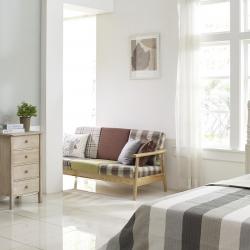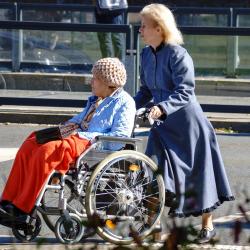The Benefits of In-Home Care vs. Assisted Living: What You Need to Know
As individuals age, the decision on how best to address changing needs becomes a significant consideration for them and their families. Two primary options often under deliberation are in-home care and assisted living facilities. Each offers unique benefits, catering differently to the varying requirements of seniors. Understanding these distinctions can help make an informed choice that aligns with the well-being and preferences of your loved one.
In-Home Care: Comfort in Familiarity
1. Personalized Attention:
In-home care allows seniors to receive one-on-one attention from caregivers, offering a level of personalization that can be difficult to achieve in communal settings. This personalized care means that services can be tailored specifically to the individual’s daily needs and evolving requirements.
2. Familiar Environment:
Remaining in their own homes, individuals benefit from the comfort and familiarity of a known environment. This can significantly impact mental and emotional well-being, especially for those with cognitive conditions such as dementia. Surrounded by cherished memories and a familiar routine, seniors often experience reduced stress and anxiety.
3. Flexibility and Independence:
In-home care provides greater flexibility in scheduling, allowing seniors to maintain control over their daily activities and routines. This flexibility encourages independence, enabling seniors to engage in their preferred hobbies or social activities at their own pace.
4. Family Involvement:
Families are better able to stay involved with their loved one's care when it is administered at home. This involvement can improve the quality of care and provide reassurance to family members, knowing they can participate actively in their loved one’s journey.
Assisted Living: Community and Structured Support
1. Social Interaction:
Assisted living facilities offer a built-in community that provides ample opportunities for social interaction. Scheduled activities, group dining, and communal spaces encourage residents to build friendships and engage in socialization, which is crucial for reducing feelings of isolation and loneliness.
2. 24/7 Supervision:
For seniors in need of constant care or those with complex medical conditions, assisted living centers offer round-the-clock supervision and support. This ensures that help is readily available in emergencies, offering peace of mind to both residents and their families.
3. Structured Environment:
Assisted living facilities provide a structured environment with regular schedules, meals, and activities planned throughout the day. This structure can be particularly beneficial for individuals who benefit from routine and predictability.
4. Access to Specialized Services:
Many assisted living facilities offer specialized services, such as on-site medical care, therapy sessions, and wellness programs. These services can address the comprehensive needs of residents in one location, offering convenience and streamlined care.
Making the Right Choice
Choosing between in-home care and assisted living ultimately depends on various factors, including the senior’s physical and emotional needs, the family’s ability to provide support, and financial considerations. It’s essential to assess the unique requirements and preferences of the individual involved.
Considerations for In-Home Care:
- Is maintaining independence and staying at home a priority?
- Does the senior have a strong support network from family and friends nearby?
- Are there modifications or resources available to ensure safety at home?
Considerations for Assisted Living:
- Does the senior require continuous medical supervision or specialized care?
- Are socialization and community engagement important to their well-being?
- Is there a preference or necessity for structured daily routines?
Conclusion
Both in-home care and assisted living have distinct advantages. By carefully evaluating the senior’s unique circumstances, preferences, and needs, families can choose the most beneficial and comfortable option for their loved one. The right decision will ultimately foster a safer, healthier, and happier lifestyle while ensuring that the senior continues to feel valued and supported.






















